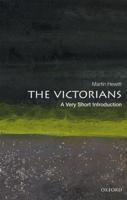Publisher's Synopsis
A study of how turn-of-the-century literary representations of "white collar" Americans were part and parcel of a new social class coming to terms with its own power, authority and contradictions. This book re-examines the life and work of Sherwood Anderson and Sinclair Lewis - as well as nearly forgotten authors such as O. Henry, Edna Ferber, Robert Grant and Elmer Rice.;Between 1885 and 1925 America underwent fundamental social changes. The family business faded with the rise of the modern corporation; mid-level clerical work grew rapidly; the "white collar" ranks - sales clerks, accountants, lawyers, advertizers, "middle managers" and professionals - expanded between capital and labour. During this same period, Wilson aims to show, white collar characters took on greater prominence within American literature and popular culture. Magazines like the "Saturday Evening Post" idolized "average Americans", while writers such as Sherwood Anderson and Sinclair Lewis produced portraits of "middle America" in "Winesburg, Ohio" and "Babbit".;By investigating the material experience and social vocabularies within white collar life itself, Wilson tries to uncover the ways in which writers helped create a new cultural vocabulary - "Babbittry", the "little people", the "Average American" - that served to redefine power, authority and commonality in American society.












